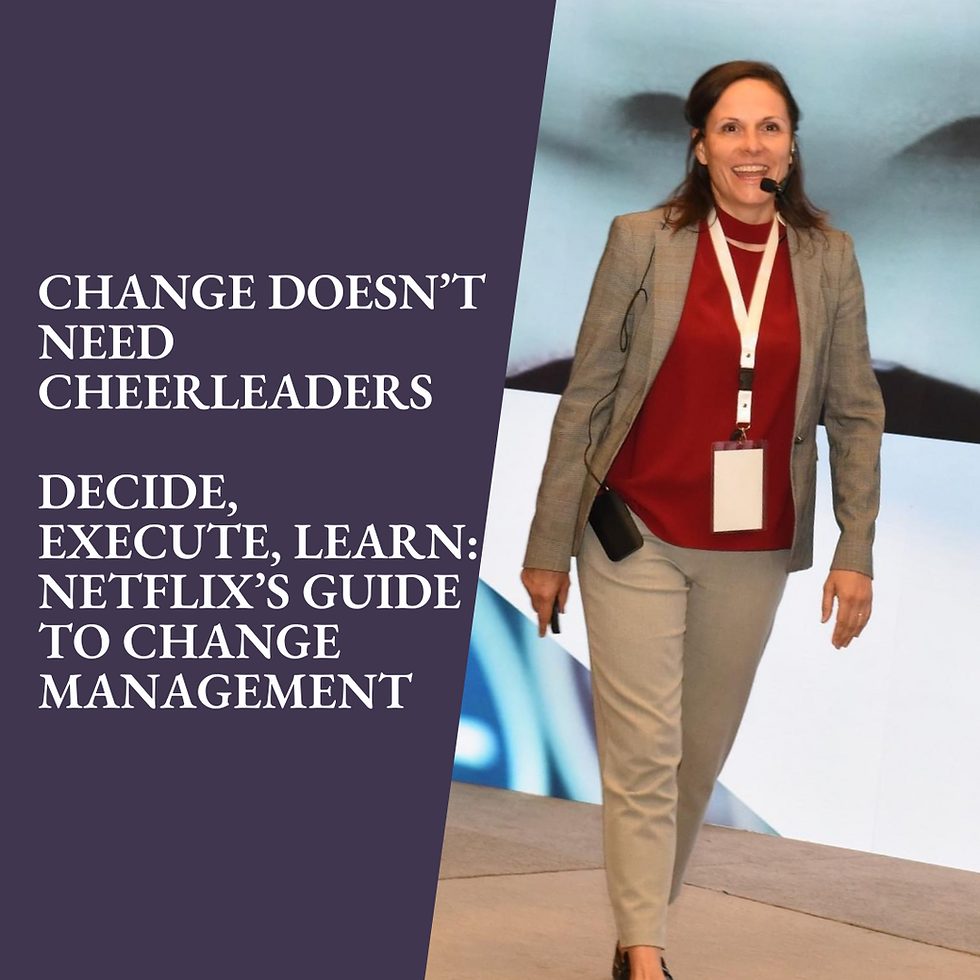Let's Face It, Leadership is for the Very Few
- Szilvia Olah

- Mar 31, 2023
- 3 min read
In a world where leadership is often glorified and praised, it's important to remember that not everyone is cut out for the job. In fact, some people are so unqualified to lead that they should be banned from even attempting it. Don't believe me? Let me tell you two stories.
There was a man named Bob. Bob was convinced that he had what it took to be a great leader, despite the fact that he had never held a position of authority in his life. He had read all the books, attended all the seminars, and even had a motivational poster in his cubicle. Bob was ready to lead.
So, when a position opened up at his company for a team leader, Bob jumped at the chance. He applied, interviewed, and somehow managed to land the job. Everyone on the team was sceptical, but Bob was confident that he could prove them wrong.
It didn't take long for things to start falling apart. Bob had no idea how to delegate tasks or give constructive feedback. He would often get so caught up in his own ideas that he would forget to listen to others. And worst of all, he had a terrible sense of humour.
Bob thought he was hilarious. He would tell jokes during meetings that no one understood and would often follow them up with a hearty laugh that made everyone uncomfortable. He once even tried to do a "trust fall" exercise with his team but ended up falling on top of one of his coworkers.
Needless to say, Bob's leadership style was not working out. His team was miserable, productivity was down, and the company was losing money. Eventually, Bob was demoted back to his previous position, and someone else was brought in to lead the team.
The moral of the story? Not everybody can lead people. Just because someone has read a few books or attended a few seminars doesn't mean they have the necessary skills to be an effective leader. It takes more than just confidence and a motivational poster to lead a team to success.
Here is another story of failed leadership.
In a large multinational corporation, there was a senior leader named John. He was a charismatic and ambitious leader who cared more about profits and himself than the well-being of his employees.
Under his leadership, the corporation's profits skyrocketed at the expense of the employees' welfare. John's focus was solely on increasing the bottom line and saving his own job, no matter the cost. The employees were overworked, underpaid, and often subjected to harsh working conditions.
John was known for his unethical practices. He would often cut corners to save costs, even if it meant violating labour laws or risking his employees' safety. He also had a culture of fear, where employees who spoke up about their concerns were threatened with termination or demotion.
Despite the company's unethical practices, John continued to earn a huge salary and bonuses. He would often flaunt his wealth by buying expensive cars and properties while the employees struggled to make ends meet.
Eventually, a group of employees organised a union to demand better working conditions, fair pay, and job security. However, John was quick to quash their efforts, using intimidation tactics and hiring union-busting consultants.
The employees grew increasingly frustrated with John's unethical leadership, and some even started to leak company secrets to the media. The corporation's reputation was tarnished, and John's greed had finally caught up with him.
In the end, John was forced to resign, and the corporation had to pay a hefty settlement to the employees. The corporation's reputation took years to recover, and many loyal customers left due to the company's unethical practices.
John's unethical leadership profoundly impacted the corporation and its employees. His legacy warned future corporate leaders that true success is not measured by profits alone but by how they treat their employees and stakeholders.
So, if you're considering pursuing a leadership position, take a good hard look at yourself first. Ask yourself if you have the skills, experience, and ethical stance necessary to lead effectively. And if the answer is no, don't be like Bob or John. Stick to what you're good at, and leave the leadership to those who know what they're doing. Your coworkers will thank you for it.

.png)



Comments